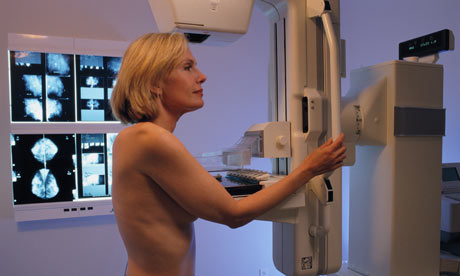US citizenship increases women’s odds of receiving mammograms, cancer tests
Citizenship, particularly for non-U.S. natives, largely determines a woman’s odds of having a mammogram and being screened for cervical and colorectal cancer, according to researchers at Penn State.
The research which was released today at the American Public Health Association’s 141st annual meeting in Boston found that foreign-born female non-citizens living in the United States for less than five years have 69 percent lower odds of being screened for colorectal cancer within the previous five years, and foreign-born non-citizens who have lived in the United States for at least five years have 24 percent lower odds, compared to U.S-born citizens. Additionally, foreign-born non-citizens have significantly lower odds of receiving breast and cervical cancer screening.
This finding coincides with implementation of the Affordable Care Act, which mandates that foreign-born residents who are lawfully present in the United States will be eligible for health care coverage beginning January 1, 2014. The current pathway to citizenship in the United States is naturalization after five years of legal permanent residency.
“Our findings offer pioneering evidence for the potential protective effects health care and immigration policy reform could have for immigrants—particularly for non-citizens, one of the most vulnerable populations in the United States,” said Patricia Y. Miranda, assistant professor of health policy and administration, Penn State. “Based on these findings we suggest that limits of duration mandates—or the increased probability of cancer screening women are projected to have if they receive citizenship sooner than five years in the United States—be reduced. This may be an important consideration in immigration policy that ensures preventive health care and reduction of cancer disparities for immigrant women.”
Researchers in this study consolidated data from the Medical Expenditure Panel Survey and the National Health Interview Survey and then analyzed all results from 2000 to 2010.
###
Other Penn State researchers involved with the study include Nengliang Yao, graduate student; Rhonda Belue, associate professor of health policy and administration; Marianne M. Hillemeier, professor of health policy and administration; Shedra Amy Snipes, assistant professor of biobehavioral health; Eugene J. Lengerich, professor of public health sciences; and Carol S. Weisman, associate dean of faculty affairs, College of Medicine.
 The Cancer Control Seed-Funding Initiative supported by a partnership among the Penn State Hershey Cancer Institute, Social Science Research Institute and Clinical and Translational Science Institute provided funding for this research.
The Cancer Control Seed-Funding Initiative supported by a partnership among the Penn State Hershey Cancer Institute, Social Science Research Institute and Clinical and Translational Science Institute provided funding for this research.
###
A’ndrea Elyse Messer
.(JavaScript must be enabled to view this email address)
814-865-9481
Penn State